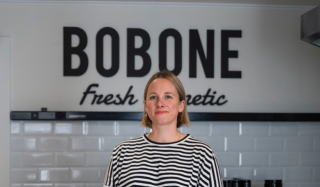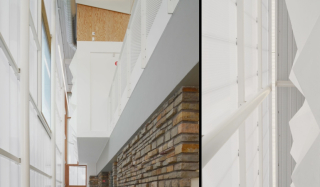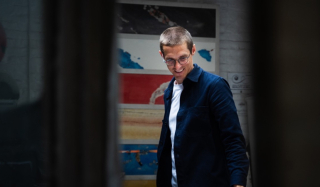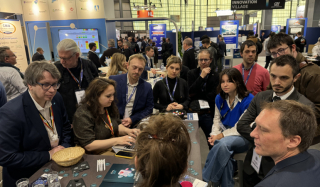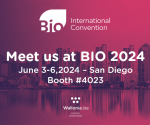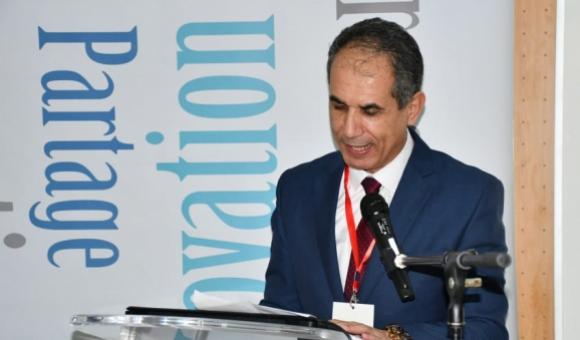
Cosmetics, packaging or textiles, bringing nano sciences into our everyday items is now well established. For almost 5 years, teams of Belgian and Moroccan chemists have been working on sustainably improving our environment.
On the Moroccan side, the Mohammed Premier University Oujda (UMP) (Morocco) team is specialised in organic synthesis and development of sustainable bio-materials with environmental and therapeutic impact. On the Belgian side, the Catholic University of Louvain (UCL) is well known for coordination chemistry, crystallisation techniques, development of nano materials, and in state-of-the-art spectroscopies (Mössbauer).
The latter is particularly well-known for his study on iron phosphates, a material that has had very limited study and is found in abundance in Morocco. Therefore, there was good reason to start a win-win collaboration between these two state-of-the-art laboratories.
In 2015 the Belgian and Moroccans scientists met for the first time in order to work on a therapeutic innovation in prevention and treatment of cancer. In effect, over 2 years the researchers would, in their respective laboratories, develop new work on what is known in scientific jargon as carboxylic acid based heterocyclic complexes. Unprecedented, they act as biological molecule receptors and show anti-cancerous activities. The development of similar functional and hybrid devices could have tremendous benefits in other industries such as absorbents and sensors, specific for detection and elimination of toxic material in water.
From therapy to the environment
During an international conference on the environment (ICMES 2016) organised in Oujda by Professor Smaail Radi’s and Professor Belkhir Hammouti’s teams new collaboration ideas emerged. The Belgian scientist Yann Garcia and the organisers decided after this gathering to widen their field of research. In May 2017, being one year later, Professor Mohamed Sajieddine, Professor Smaail Radi and Professor Yann Garcia set up a training day on the Mössbauer spectrometry of nano materials.
High demand for training sessions
Following these two events, the Belgian and Moroccan teams identified a high demand for scientific training sessions focused on recent state-of-the-art spectroscopies and high level nano chemistry for Moroccan students and researchers as well as for those from Tunisia and Algeria present at these gatherings. Consequently, both laboratories redirected their research to the environment.
A training project was then set up and enabled organising a training school in 2019 with participation of post-graduates from all the Moroccan universities and leading chemists from 20 countries. The Louvain and Oujda Universities then set up exchanges enabling Moroccan and Belgian students to benefit from work carried out in their respective laboratories. The professors from both Alma Mater now support one PhD thesis, two co-supervised theses in progress and many other theses in progress. Better still, these research programmes have been presented at several high-level conferences and around fifteen articles have been published in high impact scientific journals of which one or two have been selected for cover-pages.
The Belgian and Moroccan teams did not stop there and organised a series of training sessions which took the form of an international conference in December 2019, in Oujda entitled "Research and innovation in materials, perspectives and new opportunities" The science of nano materials generated huge interest. Close to 400 researchers attended to participate in presentations of work by managers, post-graduates and researchers associated with both laboratories, internationally renown participants.
Advances and exchange of knowledge
This gathering enabled researchers, post-graduates and industrialists from all over the world to explore recent advances concerning research and innovation for functional materials in a wide range of applications such as energy storage, medical and pharmaceutical industries, cosmetics, smart packaging, textiles, By study of the infinitely small: nano materials, nano composites, molecular and electronic materials, spin-cross-over systems or polymer coordination, researchers are attempting to find something major to improve our environment and meet specific needs with regard to sustainable development.
At the same time as the presentations and discussions, the participants were also invited to participate in a training a session on spectroscopies for environmental applications and nano chemistry, illustrating the use of sophisticated techniques such as Mössbauer Spectroscopy.
The "Training in environmental and nano chemistry spectroscopies" project by the Mohammed Premier University Oujda (UMP) and the Catholic University of Louvain (UCL) is supported by Wallonie-Bruxelles International and the Moroccan Ministry of Higher Education and Scientific research as part of the Permanent Joint Commission Morocco - Wallonia-Brussels 2018-2022 work programme.
